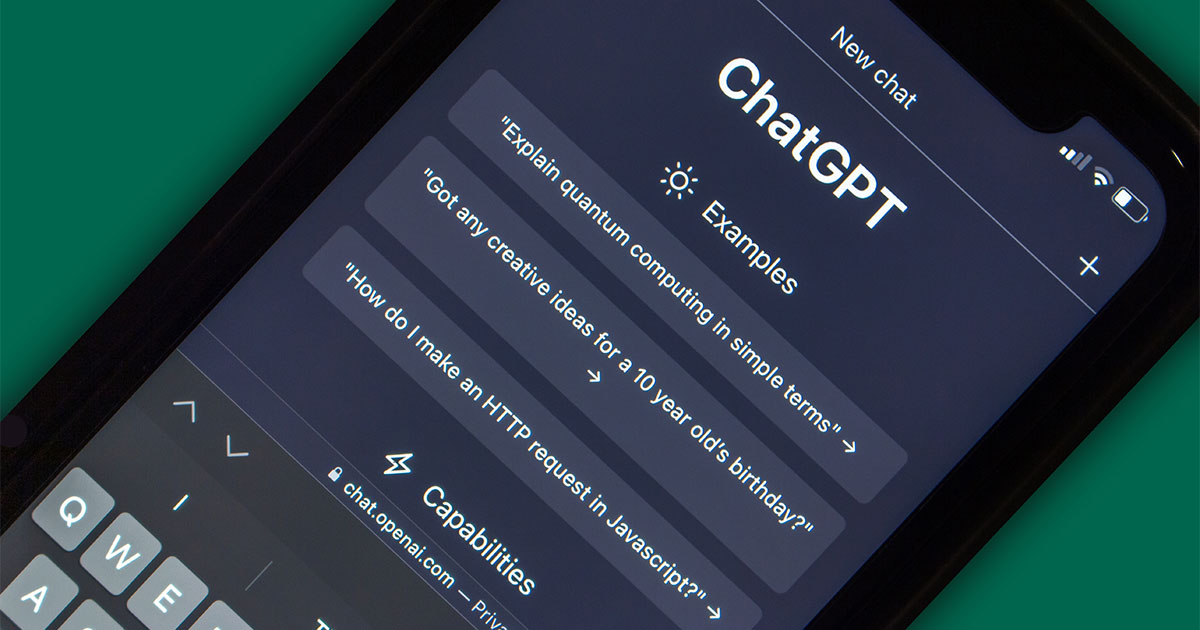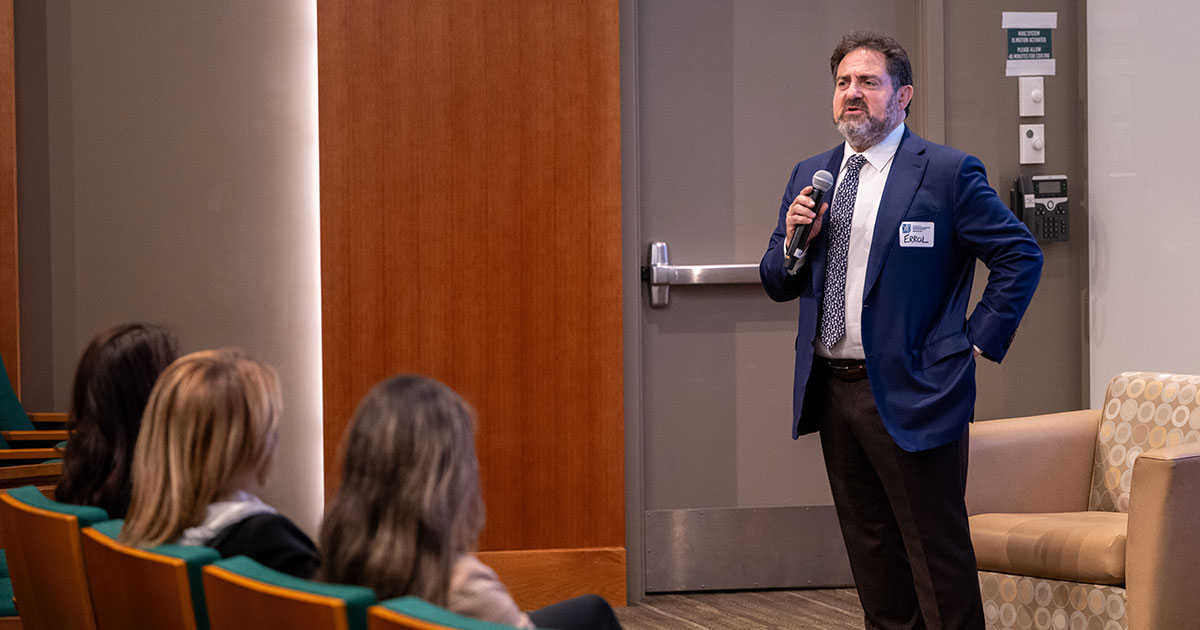What ChatGPT Will Mean for Entrepreneurs

When ChatGPT launched late last year, stories and social posts abounded with people trying out the new chatbot powered by artificial intelligence. They gave it an astonishing array of tasks to tackle, from concocting recipes and code to writing copy in the style of Shakespeare, or the Bible, or a particular hip-hop artist.
Ruth Gilleran, associate professor of practice in Babson’s Operations and Information Management Division, was surprised by the slew of people using ChatGPT. Usually, new technology takes a long time to be so fully embraced.
“It takes years,” she says. “I was astonished by how quickly it was adopted. Everyone I have spoken to knows about it, and many have used it.”
That’s not to say there aren’t justifiable concerns about the new technology, about what it will mean for education, for instance, or the future of employment. But, ChatGPT also presents tremendous potential for a wide berth of industries and applications, including entrepreneurship.
From ideation to iteration, from business pitches to social posts, ChatGPT can assist in every step of the entrepreneurial process. Picture the boot-strapping entrepreneur, struggling with a lack of time and resources, now assisted by a tireless digital assistant available for an affordable subscription.
“It works 24/7. It doesn’t get bored. It doesn’t complain,” Gilleran says. “You have someone along your side helping you out, a digital worker costing you, at the moment, $20 a month.”
Not Minimal
Gilleran is co-faculty director of Digital Technologies for Entrepreneurs, a required course for all Babson undergraduates. The course also serves as an introduction for Technology Entrepreneurship, a new concentration that Babson launched in the fall.

Ruth Gilleran, associate professor of practice in Babson’s Operations and Information Management Division
Examining AI, blockchain, the Internet of Things, coding, and many other critical tech issues, the course is meant to help students thrive in a digital world that is complicated and unrelenting. “Day one, we tell our students, regardless of the industry you go into, you have to be tech savvy,” Gilleran says.
Clare Gillan, assistant professor of practice in the Operations and Information Management Division, serves as the other co-faculty director of the Digital Technologies for Entrepreneurs course. “I want students to be thinking digitally,” Gillan says. “We live in a time of tremendous disruption, and the pace of change has only accelerated. I want them to land on the right side of that continuous change.”
ChatGPT is a startling example of that disruption and continuous change. At Babson, when launching products, students are typically taught to release a basic version, or minimum viable product, first. For a new product, however, ChatGPT doesn’t feel very basic. It feels potent and transformative. “This isn’t minimal,” Gilleran says. “It can do a heck of a lot.”
For entrepreneurs, ChatGPT can seemingly help with any task they may have. If they need assistance composing proposals or market research questions or social media posts, they can ask ChatGPT to do all these things. The end results may not be perfect, but they serve as a solid starting point that an entrepreneur can build upon. “It will jumpstart the process,” Gilleran says. “It’s not meant to be the end result. It’s supposed to augment our work.”
ChatGPT can even help entrepreneurs in the very beginning of the entrepreneurial process, as they’re trying to figure out exactly what kind of venture to start. They can ask the program for startup ideas in whatever industry they’re interested. Though noting that ChatGPT certainly can’t replace the importance of human engagement during the entrepreneurial journey, Gillan says, “It can be a flame starter for the creative process. It’s almost like having a 24/7 virtual brainstorming partner.”

Clare Gillan, assistant professor of practice in the Operations and Information Management Division
The research lab OpenAI is the creator of ChatGPT, as well as a similar program called Dall-E. The two complement each other, Gilleran says. Instead of generating text like ChatGPT, Dall-E uses AI to produce images.
Previously, entrepreneurs may have hesitated before doing design work themselves and may have farmed it out to a contractor instead. “A lot of folks have shied away from designing products,” Gilleran says, “because they’re not designers.” Dall-E helps alleviate that hesitation. Just as with ChatGPT, the results may not be perfect, but they can provide early iterations of logos and prototypes.
Taken together, ChatGPT and Dall-E can empower entrepreneurs who don’t feel they have the resources or expertise to act. “It further democratizes the entrepreneurial process.” Gilleran says.
Propelling Us Forward
When using AI tools, however, Gilleran cautions that entrepreneurs need to remember that humans are best at innovation. To stand out, startups need to be striking and unique, and that’s not something that ChatGPT can necessarily provide. “Is it good at original thought?” she asks. “No.”
ChatGPT may indeed be an amazing tool, but its results are only as good as the data being fed into it. “You have to step back and think, is this remarkable?” Gilleran says “Is this original?”
“Technology continues to propel us forward. ChatGPT helps with the entrepreneurial process, but it is also an entrepreneurial opportunity.”
Clare Gillan, co-faculty director, along with Ruth Gilleran, of Babson's Digital Technologies for Entrepreneurs course
ChatGPT’s power isn’t in producing innovation by itself but in assisting entrepreneurs to do so. As with past technology that was once on the forefront, it may help open up unforeseen entrepreneurial potential. Gillan thinks of the introduction of the smartphone and all the business and invention it left in its wake.
“Technology continues to propel us forward,” she says. “ChatGPT helps with the entrepreneurial process, but it is also an entrepreneurial opportunity.”
Posted in Insights




